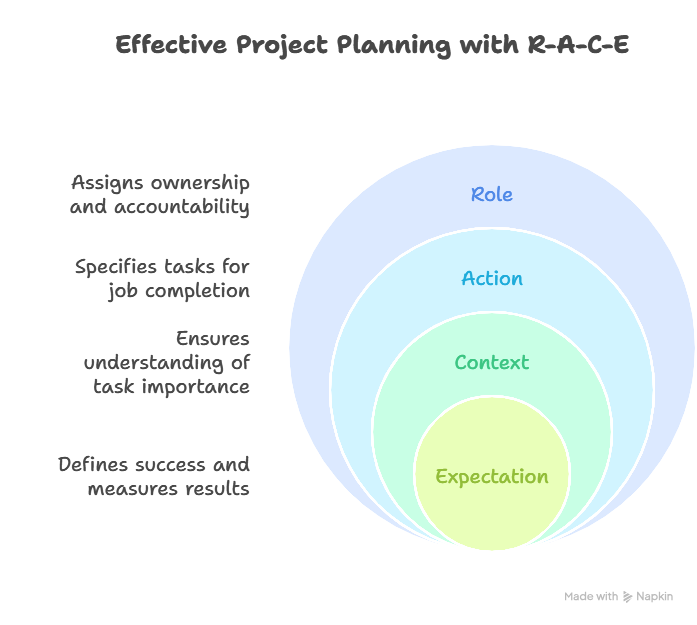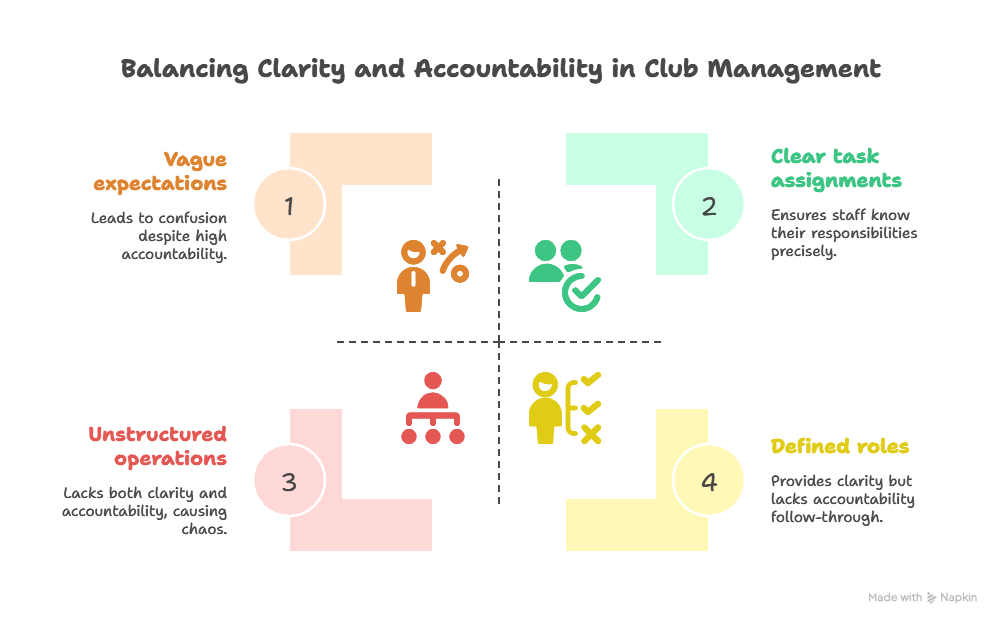
Khizer Abbas of Superhuman, one of the largest AI media companies in the world, developed a set of nine ChatGPT prompt frameworks to help professionals master AI. In this series, I’m building on his work and adapting it for the private club industry—showing how each framework can be applied to the everyday challenges managers face.
If you’ve ever walked into a staff meeting before a major event and felt that half the team was unsure about their responsibilities, you already know why clarity matters. Miscommunication—whether it’s about who’s leading, what needs to be done, or what outcome is expected—creates stress for staff and frustration for members.
That’s where the R-A-C-E framework—Role, Action, Context, Expectation—comes in. It’s a straightforward way to structure planning conversations so that everyone leaves the room with a shared understanding of what’s required.
The strength of R-A-C-E lies in its simplicity:
Role assigns ownership. Not “the kitchen” or “the golf shop,” but a person—such as the Banquet Sous Chef, the Head Golf Professional, or the Membership Director. Accountability sticks when it belongs to someone.
Action describes what needs to be done in concrete terms. Prep sheets, vendor coordination, tee sheet creation, or drafting a member email campaign. Vague directions don’t deliver results.
Context explains why the tasks matter. Maybe a recent survey highlighted long dining wait times, or perhaps the board has set revenue goals. Without context, tasks can feel like busywork.
Expectation defines what success looks like. Was the event successful because it was profitable, because attendance broke records, or because member surveys showed higher satisfaction? Setting the bar upfront makes outcomes measurable.

Suppose your club decides to host a Mediterranean-themed dining night, inspired by member requests for healthier food options.
Using R-A-C-E:
Role: The Executive Chef owns the menu and testing. The Clubhouse Manager handles staff scheduling. The Marketing Director promotes the event.
Action: The Chef finalizes recipes and conducts a tasting. The service team trains on new menu items. Marketing prepares emails, social posts, and signage.
Context: International-themed nights performed well last year, but members specifically asked for Mediterranean dishes with lighter flavors.
Expectation: At least 60 reservations, strong positive member feedback, and enough momentum to add it as a recurring monthly feature.
By organizing the project in this way, no one is left wondering who does what, why it matters, or what “success” should look like.
Private clubs are unique environments where tradition, staff workloads, and member expectations constantly overlap. A single miscommunication—whether it’s a missed table setting, a delayed tee time, or a poorly promoted event—can undermine the member experience.

R-A-C-E reduces uncertainty and builds trust. Staff appreciate knowing exactly what’s expected. Members notice when execution feels smooth. Boards gain confidence when results are tied back to clearly defined goals. It’s not about micromanaging—it’s about giving your team the clarity to deliver their best work.
Here’s how you might bring R-A-C-E into action with AI:
"You are the Clubhouse Manager of a private country club. Use the R-A-C-E framework to create a plan for a summer member-guest golf tournament. Clearly define roles, list specific actions, explain the context (such as member feedback or past challenges), and set measurable expectations for success. Present the plan in a structured narrative format."
The output from this type of prompt won’t replace your planning—but it will give you a strong draft to refine and share with your team.
In the next article we’ll move from project clarity to problem-solving with the R-I-S-E framework. This model helps clubs tackle recurring challenges such as low social event attendance, inconsistent service standards, or bottlenecks in golf and racquets operations.